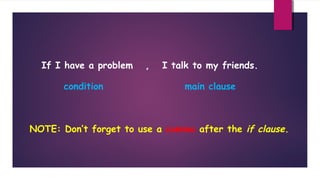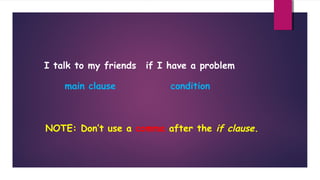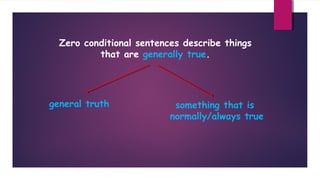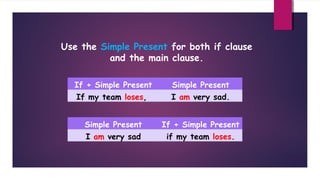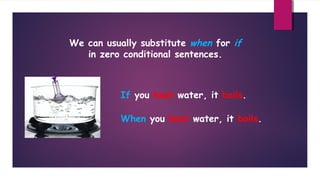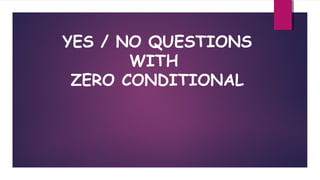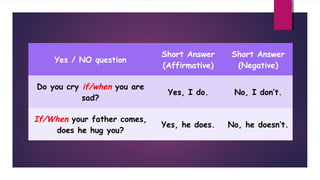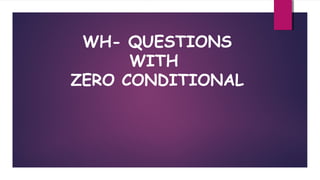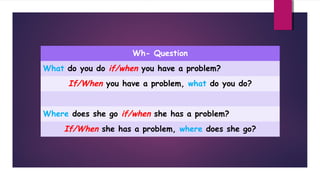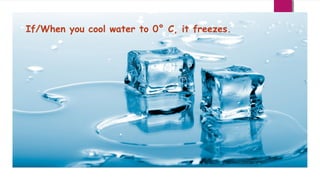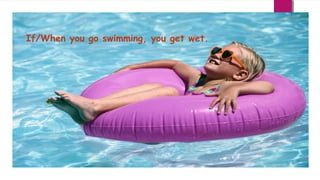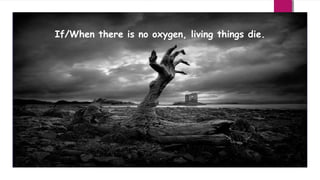Zero Conditional
- 2. If I have a problem condition , I talk to my friends. main clause NOTE: DonÔÇÖt forget to use a comma after the if clause.
- 3. I talk to my friends if I have a problem main clause condition NOTE: DonÔÇÖt use a comma after the if clause.
- 4. Zero conditional sentences describe things that are generally true. general truth something that is normally/always true
- 5. Use the Simple Present for both if clause and the main clause. If + Simple Present Simple Present If my team loses, I am very sad. Simple Present If + Simple Present I am very sad if my team loses.
- 6. We can usually substitute when for if in zero conditional sentences. If you heat water, it boils. When you heat water, it boils.
- 7. YES / NO QUESTIONS WITH ZERO CONDITIONAL
- 8. Yes / NO question Short Answer (Affirmative) Short Answer (Negative) Do you cry if/when you are sad? Yes, I do. No, I donÔÇÖt. If/When your father comes, does he hug you? Yes, he does. No, he doesnÔÇÖt.
- 10. Wh- Question What do you do if/when you have a problem? If/When you have a problem, what do you do? Where does she go if/when she has a problem? If/When she has a problem, where does she go?
- 11. If/When you cool water to 0┬░ C, it freezes.
- 12. If/When you go swimming, you get wet.
- 13. If/When you practice English every day, you learn fast.
- 14. If/When we meet after work, we have coffee together.
- 15. If/When there is no oxygen, living things die.


